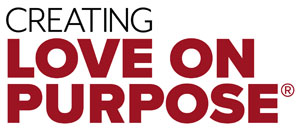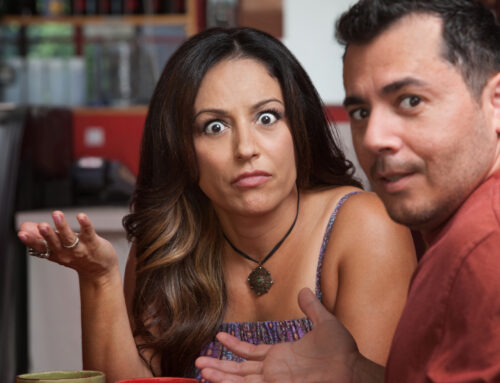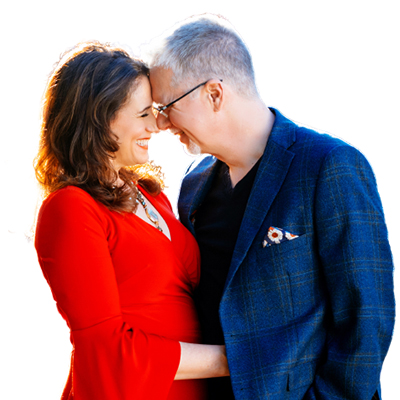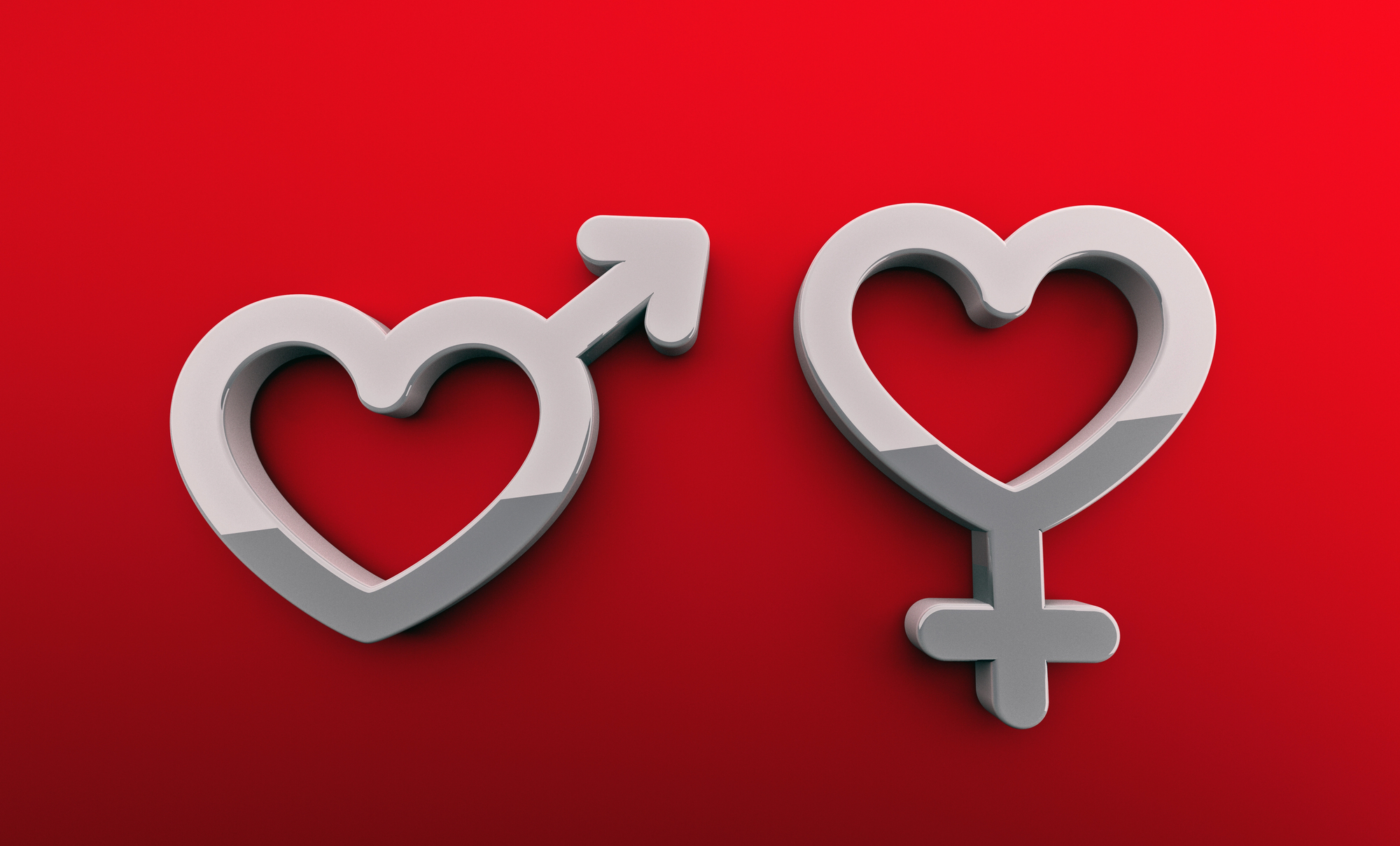Breaking The Patterns Of Unhealthy Relationships — 20 Red Flags You’ll Be Broken Hearted Again
Falling in love should feel exciting, hopeful, and expansive—not like you’re walking on eggshells. Yet most people ignore red flags when they start dating someone because the chemistry they feel causes them to see their new prospect in the best light. Don’t get caught in a pattern of unhealthy relationships.
Wearing rose-colored glasses makes you brush aside, explain away, or ignore behaviors that are clear signs this is an unhealthy relationship. If you’ve found yourself stuck in an unhealthy relationship pattern over and over again, recognizing red flags gives you the ability to identify the problem before you’re in too deep.
If you don’t break the cycle you’ll end up recreating the same kind of unhealthy relationships until you become apathetic about love. Unhealthy relationships are formed from subconscious habits, past trauma, and limiting beliefs about love and self-worth. The good news? When you spot the red flags early, you can walk away with your heart intact and make a better choice the next time.
Long-lasting love in a healthy relationship doesn’t just happen by accident. First, you must break your bad habits and strategies to take a new approach to finding love.
20 Signs Of Unhealthy Relationships To Avoid
-
Addiction, Abuse, or Cheating
Let’s start with more obvious patterns in unhealthy relationships. If someone is actively struggling with substance abuse, has a history of abusive behavior, or has cheated in past relationships (and takes no accountability), believe what they show you.
These issues are a chronic problem unless the person has spent a significant amount of time in recovery. Even with years in recovery, it’s their journey to walk—not yours to manage. No amount of love can override unwillingness to change. These are not just red flags—they’re fire alarms. If you’re stuck in an unhealthy pattern of selecting a toxic person you may need support to break your pattern of co-dependence.
-
Controlling Behavior
Control often sneaks in under the guise of caring: “I just worry about you,” or “I want what’s best for you.” But when caring turns into controlling your schedule, your wardrobe, your friendships, or your career decisions, it stops being love and becomes manipulation. It’s easy to spot the difference because love expands you while control confines you.
The obvious red flag of this unhealthy relationship dynamic is that your partner is constantly trying to override the choices you make for yourself. This red flag cannot be ignored or pushed aside.
-
Refusing to Repair After an Argument
Arguments happen in the best of relationships. Conflict is a natural part of every healthy relationship dynamic because the other person is not you. What matters most is how each partner handles disagreements. If one person stonewalls, pretends nothing happened, or is stuck in blame without owning their role, there’s no repair. Without repairing, resentment grows, and there’s no opportunity to reconnect.
Healthy relationships grow together over time because each partner takes responsibility and is able to repair; unhealthy relationships stagnate and die because of avoidant behaviors and blame.
-
Endless Criticism and Judgment
When someone critiques how you look, talk, eat, dress, or behave—especially under the mask of “just being honest”—pay attention. Chronic criticism and judgment erode your self-worth. Gradually, you may start second-guessing yourself in all areas of life.
A partner who supports your growth will offer occasional feedback, and will always come from a place of respect and encouragement. In an unhealthy relationship one person is constantly critical and puts themself beyond reproach.
-
Overly Defensive
Defensiveness is a sign your partner can’t take responsibility for their bad behavior. Each time you raise a concern and they shift the blame back to you, revealing their inability to be in a healthy relationship.
If you find yourself accepting blame, you’re doomed to continue the pattern of choosing unhealthy relationships. Healthy relationships require two people who can take responsibility for their actions and repair—not just react.
-
Gaslighting
Gaslighting isn’t just denying facts, it’s when someone invalidates your feelings, twists your words, or makes you question reality. The goal of gaslighting is to create confusion and make you dependent on the very person causing the harm. You’ll stop trusting yourself and question your experience, which is exactly what the perpetrator desires.
This unhealthy relationship pattern fosters insecurity to the point of the victim relying on their abuser, bonded to them and unable to be on their own.
-
Lying—No Matter How Small
Lies of any size or arena of life are an unhealthy pattern in a romantic relationship. Lies regarding small details: what time they got home, who they texted, why they were late, are just as egregious as those about infidelity or finances.
Lying chips away at trust—one omission at a time. Healthy relationships are built upon trust and accountability.
-
Breaking Trust – Without Amends
Every person makes mistakes, however, when trust is broken, it must be repaired intentionally. If your partner expects you to move on without an apology or offering amends, they don’t value the relationship.
In a healthy relationship, partners say, “I’m sorry,” and consistently make an effort to prove they’re trustworthy again.
-
Making Excuses for Bad Behavior
Pay attention to how you speak about your partner with your inner circle. If you’re constantly in a position of defending their actions, making excuses, or ending up saying, “They didn’t mean it that way,” you’re making excuses for their bad behavior.
Respecting someone means having empathy and compassion for them, however, enabling poor behavior encourages them to continue to make bad choices without consequences.
-
Shutting You Out Emotionally
Intimacy requires emotional authenticity. If your partner is a vault—never sharing feelings, avoiding emotional conversations, or shutting you down when you’re vulnerable—they’re not emotionally available for a relationship. You may find yourself hoping to win their love when they’re incapable of sharing it.
This pattern in unhealthy relationships leaves you feeling more isolated and lonely in your relationship than you were when you were single.
-
Guilt Tripping
There’s no place for guilt in love, rather, it’s manipulation. If your partner uses guilt to get what they want, you’ll find yourself becoming angry and resentful that you’re sacrificing your needs.
Guilt tripping may sound like: “After everything I’ve done for you…” or “You must not care about me if you won’t…” This manipulation tactic makes love transactional rather than an emotional bond.
-
One-Sided Effort
You shouldn’t be the only one reaching out, planning, problem-solving, or initiating emotional intimacy. If you’re carrying the emotional labor of the relationship while they coast, you’re in a co-dependent unhealthy dynamic.
Healthy relationships thrive when effort is mutual, not when one person becomes the caretaker for the bond between the two of you.
-
Constantly Feeling Anxious or Insecure
Love feels like a safe harbor—not an unpredictable storm. If you’re constantly wondering where you stand, if they’ll call, if they’ll pull away, that’s not love—that’s anxiety. Chronic feelings of insecurity and anxiety are detrimental to a partnership.
In a healthy relationship the partners are interdependent, they don’t acquire feelings of self-worth through the relationship.
-
Emotional Instability or Lack of Regulation
Your partner doesn’t need to be Zen all the time, but if they explode in anger, spiral into moods, or can’t handle any disappointment without shutting you out, the relationship is emotionally unsafe. You’ll compulsively attempt to manage their reactions instead of showing up as your authentic self.
The inability to emotionally regulate or manage triggers by one or both partners is often the basis of unhealthy relationships.
-
Love Bombing or Moving Too Fast
Being showered with affection at the start of the dating process by someone who says all the right things, and wants to spend every moment with you may appear romantic, however, speed is not the same as connection.
There’s no such thing as instant intimacy. It takes time to get to know another person. Love bombing can be a sign of emotional immaturity or manipulation. A real connection develops gradually rather than quickly.
-
Co-Dependence and Poor Boundaries
When two people fuse into one identity it may feel like closeness—but it’s actually a loss of self. Feeling like you can’t make a move without their permission, or having to check in for fear of retaliation is not love.
In a healthy relationship, boundaries come from making agreements and having respectful discussions about expectations.
-
Isolation from Friends or Family
Abusive and controlling partners seek to cut you off from your support systems. Sadly, this seclusion doesn’t always begin in an obvious way. Subtle complaints when you go out with friends, double-booking your calendar when you have plans with family, and criticism of people you love and respect.
In a healthy relationship you become a part of each other’s lives and your communities come together. Plus you’re free to see the people you love as often as you like. If your community shrinks in the relationship, that’s a red flag.
-
Avoidance of Conflict
Conflict is not the enemy, however, avoiding it is. If your partner refuses to address concerns, shuts down when you bring up an issue or sees all disagreements as a threat to the relationship, you’re not in a mature relationship.
If you find yourself going along to get along, you’ll never know if the two of you can overcome your differences to grow together and share a lifetime of love.
-
Jaded Views on the Opposite Sex
If someone constantly talks about how “all women are gold-diggers” or “all men are cheaters,” that worldview is going to show up in how they treat you. Misogyny and misandry aren’t harmless opinions—they’re deep-rooted biases that sabotage connection.
-
Bait and Switch
You meet someone who shares your lifestyle and your likes and dislikes — and then once they get a commitment they change their tune. They no longer want to join you in your hobbies and they may even become critical of them.
This kind of shift is a form of manipulation. They only put in the effort to win your love, and once they have a commitment they no longer have to join you in your interests. People who bait and switch aren’t interested in you, they’re interested in having a plus one in their life.
How to Break The Pattern Of Unhealthy Relationships
Red flags aren’t just about other people’s behavior—they show up in your responses to behavior. Dating with discernment is not taught on the internet or in school. Instead people expect that they will just one day meet their ideal mate without evaluating the other person’s capacity to meet their needs.
If some of these red flags and patterns sound familiar you’re not doomed. The good news is that you’re now aware of the problem and ready to do love differently.
Instead of seeking a partner to fill an empty space inside, or to heal your wounds, put your efforts toward learning to love yourself first. It is the love you have for yourself is reflected back to you in the eyes of your beloved.
Slow down the dating process and use dating to discover about yourself. Plus, by slowing down you’re more likely to see red flags and avoid risking your heart.
Find Support To Break Your Pattern Of Unhealthy Relationships
No one heals their unhealthy relationship patterns alone. Whether through coaching, therapy, or community, surrounding yourself with people who model healthy love can be a game changer.
At Creating Love on Purpose®, we help clients identify their subconscious patterns, shift their dating strategies, and build relationships that feel like home—not a battlefield. If you’re tired of the merry-go-round and ready to write your new love story, we’re here for you.
Schedule a complimentary Breakthrough Call and let’s begin your journey to creating healthy relationships on your terms.
Because when you date differently, you love differently—and that changes everything.
About the authors
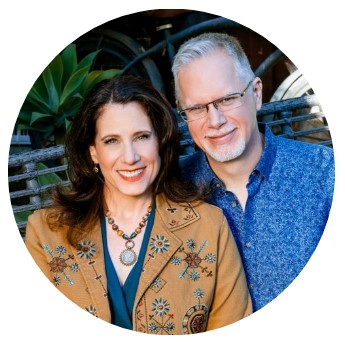
Orna and Matthew Walters are dating coaches and founders of Creating Love On Purpose with a holistic approach to transforming hidden blocks to lasting love, and the authors of Getting It Right This Time. They’ve been published on MSN, Yahoo!, YourTango, Redbook, Newsweek, Best Life, and have been featured guest experts on BRAVO’s THE MILLIONAIRE MATCHMAKER with Patti Stanger, and as guests with Esther Perel speaking about love and intimacy.
